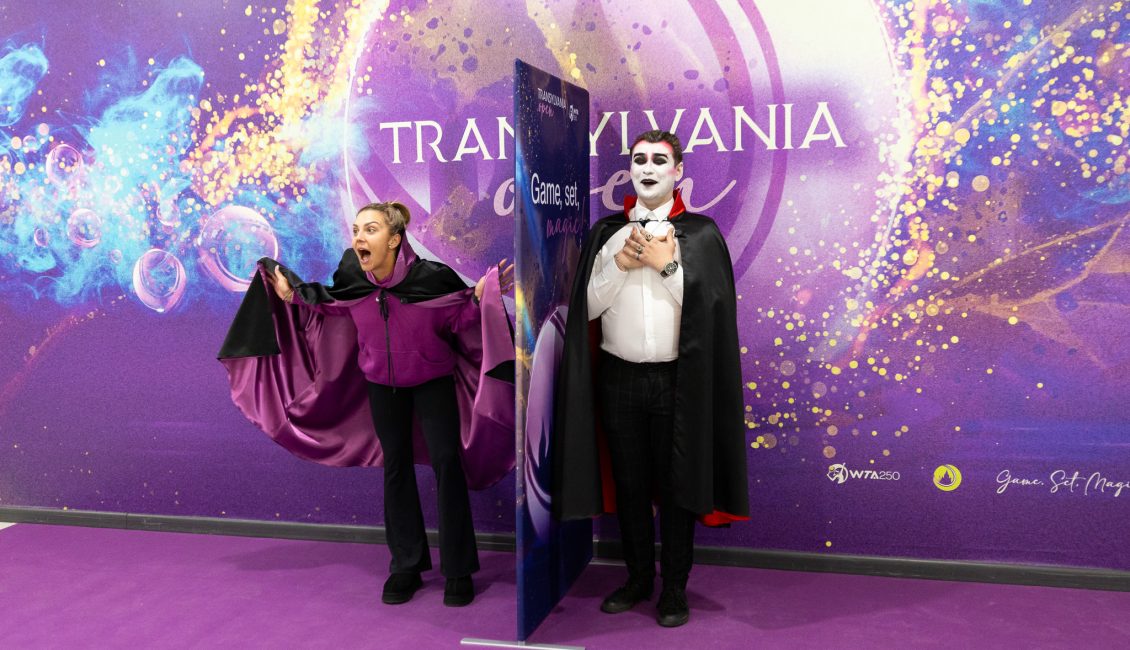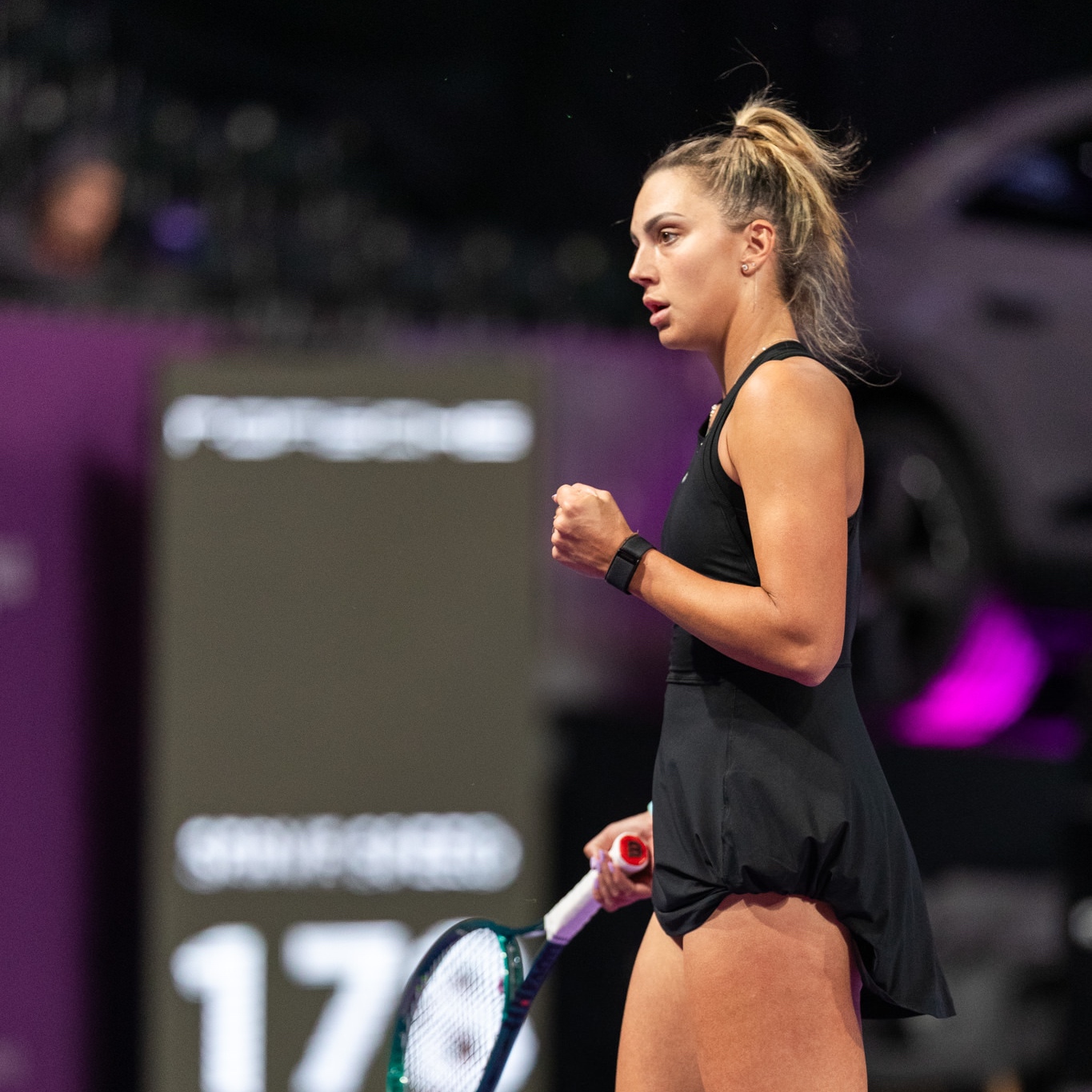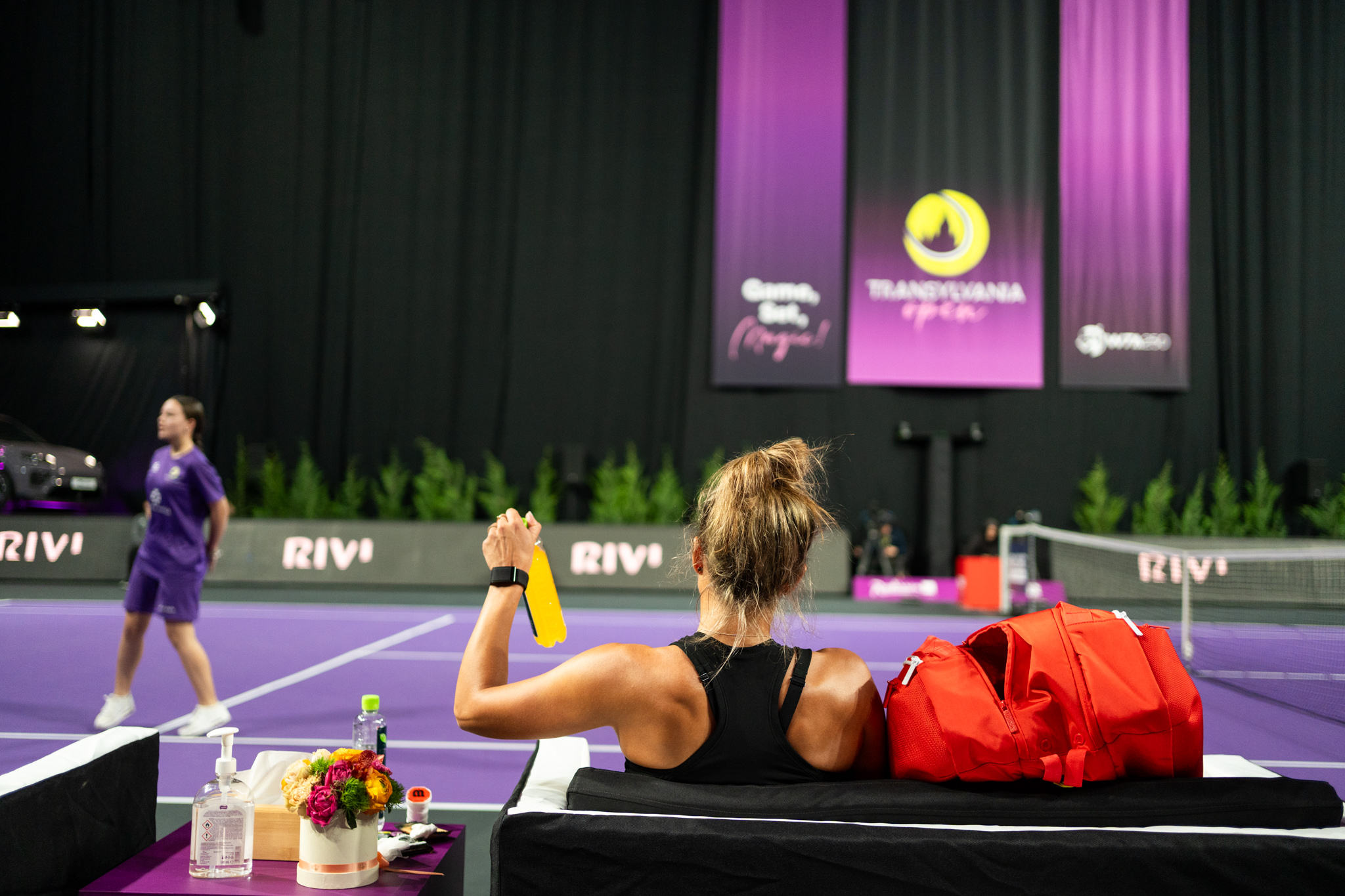
Jaqueline Cristian has become the fifth Romanian player to reach a Transylvania Open final in the tournament’s five-year history, following Simona Halep and Irina Bara (2021), Gabriela Ruse (2023) and Ana Bogdan (2024).
We spoke with Jaq about her strong start to the season, which saw her reach the third round of a Grand Slam for the first time, and about her impressive run to the doubles final in Cluj—despite battling a severe cold.
Jaq, you’re coming off a great period. You had an excellent Australian Open, reaching the third round of a Grand Slam for the first time. How do you feel? How much confidence did that give you?
I feel really good. The result at the Australian Open gave me a lot of confidence. Unfortunately, I had a setback because I caught a terrible cold. It got worse here and I couldn’t be at 100%, not even close. It was a struggle just to get out of bed every day. I’m disappointed, I didn’t want this to happen, especially here. But that’s tennis and I have to go on.
Otherwise, I’m playing well, I feel okay. I’m staying positive and trying to improve my movement as much as possible. That’s where I felt I had an edge in Australia. Of course, tennis is very mental, if your mind is in the right place, your body follows. But when you also have a strong physical foundation, it helps your mental game tremendously.
Before the Cluj tournament, you were approaching your career-best ranking. This comes after a serious injury a few years ago. How did you get through that? Do you feel more prepared for the next step?
It’s been almost three years since that injury. So much has changed since then. I’ve grown, I’m more aware of everything around me, and I see both tennis and life on tour differently. At the same time, that period made me realize that tennis isn’t everything, there’s life beyond the sport. That changes your perspective on tennis; it teaches you to appreciate the present more. We only have one career and it’s not an “a la longue” one.
I try to work on myself as much as I can, improving every day, not just as a player, but as a person. I truly believe that being a good person comes before being a great athlete.
Are you at a point where rankings and numbers aren’t enough for you anymore?
Exactly! There are matches I lose but still feel okay about, and there are matches I win but don’t feel satisfied with. That’s part of maturing, you realize rankings aren’t everything and that everyone has their path. There’s space for everyone, and we all work in our way, at our own pace, in our direction. Mentally, that’s where I am right now.
I try to improve as much as possible, identify weaknesses, and work on them. I know it’s an ongoing process, nothing in tennis is ever certain. I’ve experienced firsthand how life can change overnight. Now I know that when nothing is certain, everything is possible. And that’s why you have to embrace the good, stay open to opportunities, and always be ready. And to be ready, you need discipline, daily routines, and a clear direction because when your moment comes, you have to be prepared to seize it.

2025 was also special because it marked Simona Halep’s retirement from professional tennis. How did you experience that moment, and what do you think is Simona’s legacy?
It was an emotional and bittersweet moment. I could feel both the joy and the relief in her voice when she made the announcement and I understood why she made that decision. I’ve put myself in her shoes many times and I think I would have done the same. In the end, as she said, you have to know when to stop and enjoy life. For 30 years, she wasn’t just a person, she was a machine, an elite athlete who made the biggest sacrifices. Now it’s time for her to enjoy everything she’s worked for. That’s completely normal.
She is, without a doubt, the greatest athlete in Romania’s history and she will remain so for a long time. What she has achieved is incredibly difficult to replicate. She has set the standard in terms of hard work, motivation, discipline and dedication. You could always see that she played with her heart, and I hope young players who aspire to follow in her footsteps understand that without dedication, sacrifice, and pure hard work, success is impossible.
You can’t do it all. You can’t excel in school, have a great social life, and also reach the top of professional sports. That’s just not how it works. You have to commit from a young age, at seven, eight, nine, ten years old, and you need proper guidance.
One of the most important messages Simona emphasized was about parents supporting their children. If a parent wants their child to succeed like Simona Halep, they need to understand that this path is extremely tough. But having parental support can make all the difference, it gives you wings. It’s the most important thing. Sometimes, as athletes, we feel like we’re disappointing our parents, especially when we know how much they’ve sacrificed for us. Even if parents don’t directly pressure us, we often feel that pressure.
You’ve been one of the iconic faces of the Transylvania Open, which has now reached its fifth edition. How do you see the importance of this tournament and if you had to pick a special moment, what would it be?
The moment with “Draculina,” wearing the Dracula cape, is iconic! The Transylvania Open means a lot to me, and I think it’s incredibly important for Romanian tennis in general. It gives us the chance to experience a top-level tournament atmosphere.
The conditions here are just like those at the biggest events. Honestly, I don’t see any difference between the Cluj tournament and a WTA 500 event. For Romanian players, this tournament is huge because it allows them to witness firsthand what high-level tennis looks like, the level we all dream of reaching as kids.
For me, this is the most special tournament of the year because it’s at home. The joy of playing in front of your crowd is amazing. The Transylvania Open feels like a Fed Cup match, except it lasts for a whole week. The challenge is to stay in the tournament as long as possible so you can soak in the atmosphere.







